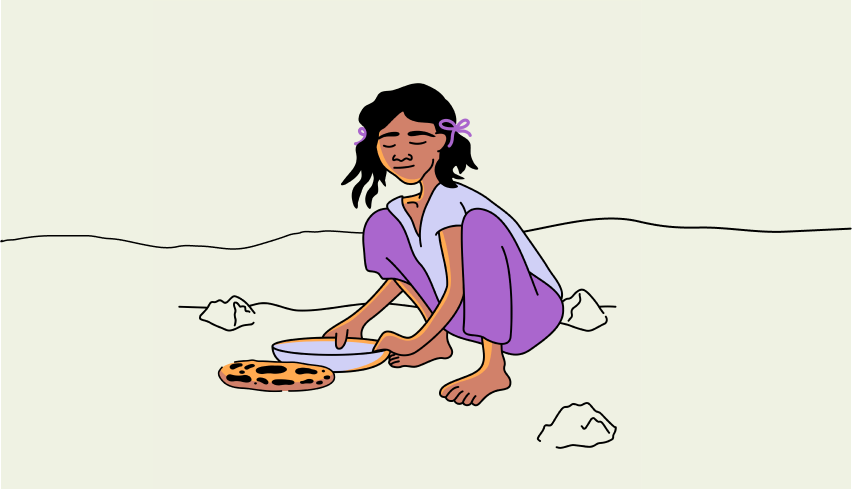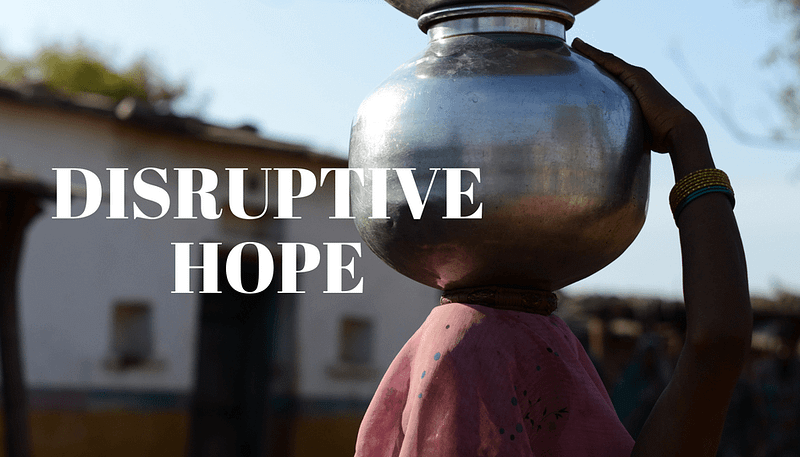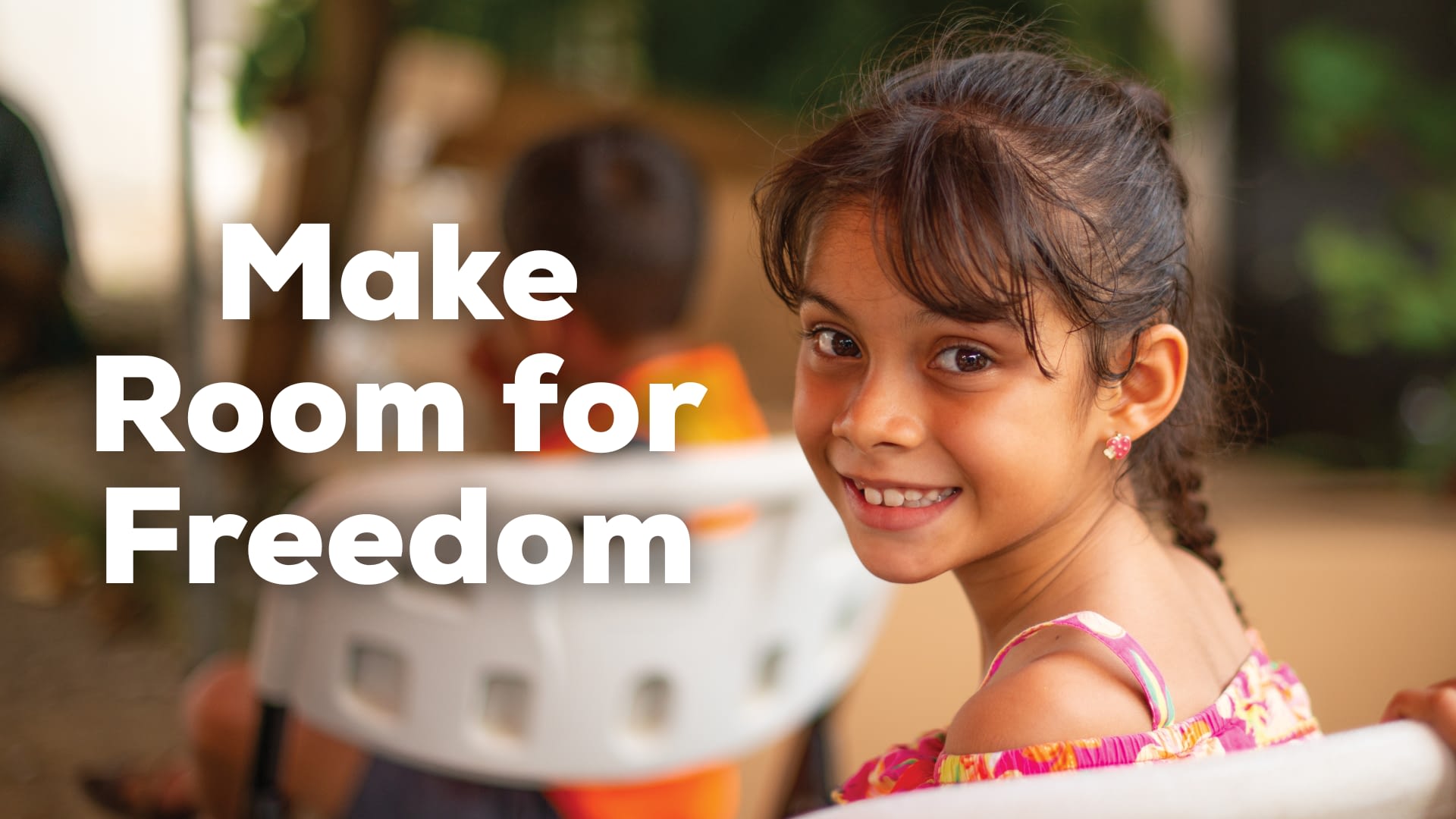The whole community gathered around the giant drill rig as it threw dust up into the air. The Well drilling had completely disrupted the day. Kids took a break from classes, farmers came back from the fields early and grandmothers braved the heat not to miss the moment. The rig had been working hard, digging deep into the dry earth and everyone could sense that today was the day. Dirt towered up into the sky as little faces, covered in dust, watched and eagerly waited for the moment water would come to their community. And just like that, seemingly out of nowhere, but after days of hard labor, water gushed from the earth. The whole community exploded in celebration, dancing as the muddy water rained down on them. Hope, and water, had just disrupted decades of drought and illness that had plagued this community. What was once a dry land of despair now held a promise of life and hope for the future.
Hope does that. Hope has the power to disrupt narratives of despair and transform our lives and the lives of those around us. Hope whispers a promise where bareness has taken hold. Hope looks at overwhelmingly impossible situations and says, “yea, but what if…”
Disruptive hope is one of the most powerful forces of change on the planet. We get to see it all the time at SOS. Sometimes disruptive hope looks like a meal for an at-risk child who hasn’t eaten in days. Other times it looks like safe, clean drinking water returning to a community or a path out of hell for a girl that has been trafficked. Disruptive hope looks like men and women who believe better for their community, and are committed to being a part of the change.
There are two true things about disruptive hope:
- It doesn’t happen without us – humans – engaging in it.
- It loves a “seemingly out of nowhere but after days (or years) of hard labor” story
One of my favorite things about disruptive hope is that everyone can participate in it. It’s not something reserved for the great men and women, but its power is most often manifested in the everyday man choosing to view life through a different lens. Choosing to let their own day or way of thinking be disrupted in order to be an agent of hope in unlikely places.
Pope Francis said “You pray for the hungry. Then you feed them. That’s how prayer works.” I think that’s how hope works too. It starts as a belief, but it has to move into action. Hope, and water, were able to disrupt decades of drought and illness, in the community I mentioned earlier, because someone, in another part of the world, allowed themselves to be disrupted. They heard about a need, allowed themselves to be moved by compassion, and gave a gift to become an agent of hope in a community they will never visit. They let hope disrupt them and then partnered with hope to disrupt despair.
Good work is rarely quick work. Whether you’re waiting for hope to disrupt despair in an area of your own life or partnering with hope to disrupt despair for someone else, hope takes time. It’s a continued, daily practice of not growing weary in doing good. Transformation doesn’t happen overnight. And then suddenly, seemingly out of nowhere, hope gets the last say.
Disruptive hope is uncomfortable and we often can push it off, choosing to stick to our schedules and ways of thinking. But when we partner with it instead, transformation takes place in us, in our families, and in our communities. What area of your life do you need to let hope disrupt the narrative? Where can you partner with hope to disrupt despair?




